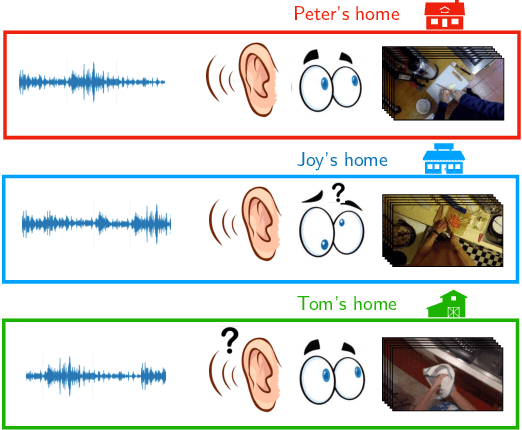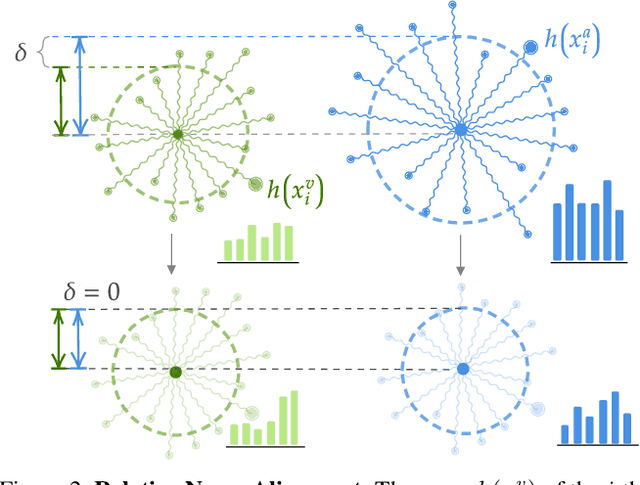Cross-Domain First Person Audio-Visual Action Recognition through Relative Norm Alignment
Paper and Code
Jun 03, 2021



First person action recognition is an increasingly researched topic because of the growing popularity of wearable cameras. This is bringing to light cross-domain issues that are yet to be addressed in this context. Indeed, the information extracted from learned representations suffers from an intrinsic environmental bias. This strongly affects the ability to generalize to unseen scenarios, limiting the application of current methods in real settings where trimmed labeled data are not available during training. In this work, we propose to leverage over the intrinsic complementary nature of audio-visual signals to learn a representation that works well on data seen during training, while being able to generalize across different domains. To this end, we introduce an audio-visual loss that aligns the contributions from the two modalities by acting on the magnitude of their feature norm representations. This new loss, plugged into a minimal multi-modal action recognition architecture, leads to strong results in cross-domain first person action recognition, as demonstrated by extensive experiments on the popular EPIC-Kitchens dataset.
 Add to Chrome
Add to Chrome Add to Firefox
Add to Firefox Add to Edge
Add to Edge